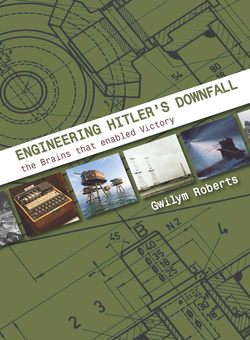Читать книгу Engineering Hitler's Downfall - Gwilym Roberts - Страница 14
На сайте Литреса книга снята с продажи.
Definition of an Engineer
ОглавлениеScientists undertake basic research while engineers develop the results of such research into practical applications, which when built are generally maintained – and often operated – by craftsmen. Together these are often referred to as technologists.
In this book Engineers are the scientists, engineers and other technologists in both the fighting and civilian services who:
• Undertook basic research
• Conceived, designed, or developed new systems, machines, and weapons
• Manufactured or maintained such equipment
• Served in the technical units of the armed forces
More information about the various groups of military and civilian personnel involved and some associated details are contained in Appendix 1.
Lord Bowden went even further by claiming that ‘All the courage of Fighter Command and the skill of the Few would have been wasted, had it not been for the timely installation of the primitive radar system which saved us in 1940.’
David Edgerton stated the following: ‘The build-up of this empire of machines made Britain an exceptionally mobilized society where millions of people were making and using modern armaments on a huge scale. This warfare state was run by a wartime British government full of experts, of scientists and economists and businessmen.’
Winston Churchill, while First Lord of the Admiralty in February 1940, offered this encomium in Parliament: ‘I wish this afternoon to pay my tribute to the Engineering Branch [of the Royal Navy] … the man around the engine without whom nothing could be done, who does not see the excitements of the action and does not ask how things are going, but who runs a very big chance of going down with the ship should disaster come.’
Britain established the most effective interaction between technologists and its military of any country that fought the war. The seeds of this success were sown during the rearmament programme of the pre-war years, when the Royal Society and other professional bodies identified key technical activities which in the event of conflict should become reserved occupations, freeing those engaged in them from serving in the armed forces.
They also prepared a register of scientists and engineers whose work could be of particular benefit which by 1939 contained some 5,000 names. In addition, state bursaries were awarded to over 50,000 young people (including the author) to enable them to study a technological subject before entering the fighting services or going into industry.
